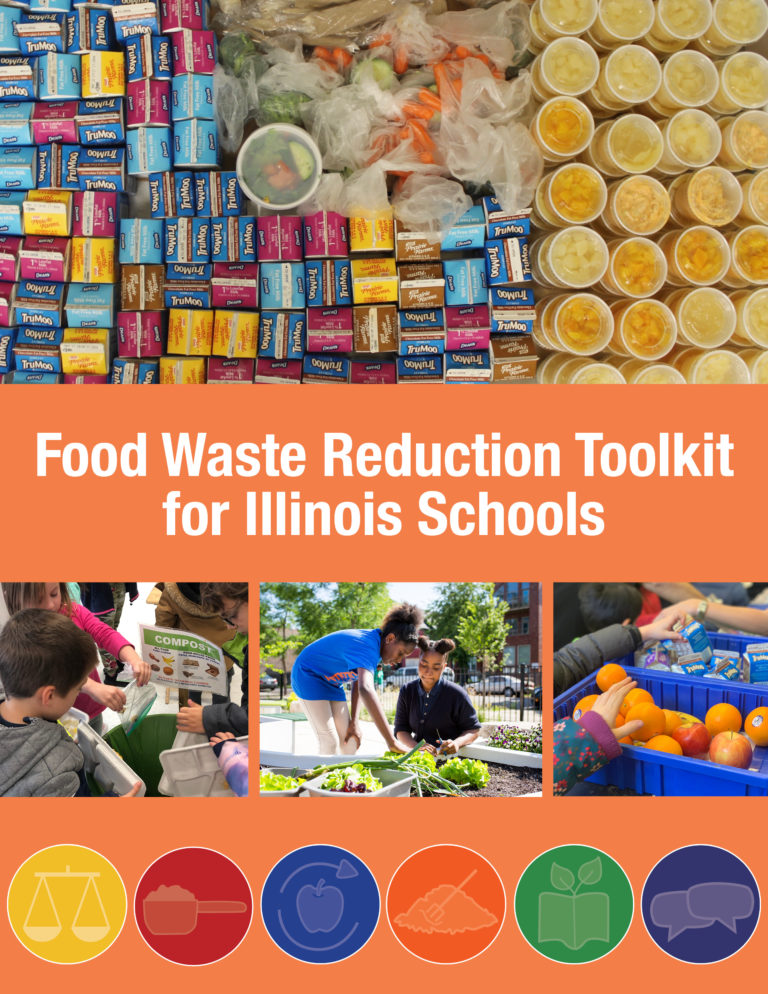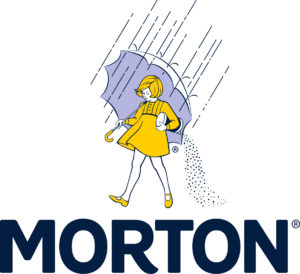
What’s the problem with food waste in schools?
Over 7 billion school meals are served each year in the United States. Much of this food, however, is currently feeding landfills instead of nourishing students. This is while one in six children is food insecure. When food is landfilled, not
only are its nutrients lost, so are all the energy, water, and labor that went into producing, transporting, and preparing it. K-12 schools have a unique role in teaching students to value food instead of wasting it.
The Food Waste Reduction Toolkit for Illinois Schools can help.
The Toolkit is a comprehensive resource that provides all schools, no matter their size or location, the tools to tackle the issue of wasted food. It identifies the main sources of wasted food and offers strategies for food waste prevention, recovery and redistribution, composting, education and engagement, and celebrating success. A variety of solutions are shared–from easy and quick to implement to longer term and more resource intensive.
The Toolkit's easy to use format allows you to jump in to find the strategies that work for your school. Each section includes case studies that highlight inspirational efforts to reduce food waste in schools across Illinois and provides guidance on:






Waste audit guides
How to determine what to audit in
your lunchroom and kitchen
Food waste tracking in kitchens
Analyzing waste audit data
Sourcing food from school gardens and local farms
to encourage consumption of healthy foods
Menu planning and food preparation
Preventing food waste at the serving line, including
Offer versus Serve
Policies and laws regarding share tables and the redistribution of food
(including the Bill Emerson Good Samaritan Food Donation Act that
supports the donation of recovered food)
How to set up and operate a share table
Redistribution of surplus food within a school
Donation of surplus food to an outside organization or in-school food pantry
The environmental benefits of composting
Onsite composting
Offsite commercial composting
How to get started composting in your lunchroom
Hands-on classroom or service learning projects
Curricula and lessons about food and food waste
Teaching tools and resources
Communications within school community
Communications with the wider community
Get recognized with programs such as Green Ribbon
Schools and the U.S. Food Waste Challenge
The Food Waste Reduction Toolkit for Illinois Schools is a project of the Wasted Food Action Alliance and was developed by
Seven Generations Ahead in collaboration with partners from the Wasted Food Action Alliance.
The Wasted Food Action Alliance is a diverse set of organizations helping to build a unified approach towards
reducing wasted food through collaboration, education, and policy.
Funding provided by

Food:Land:Opportunity is a collaboration between Kinship Foundation
and The Chicago Community Trust and funded through the Searle Funds
at The Chicago Community Trust.

